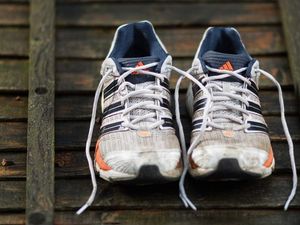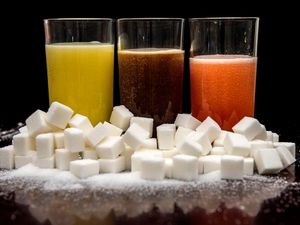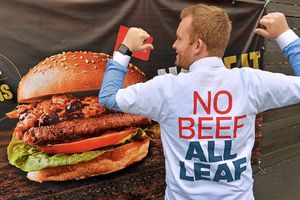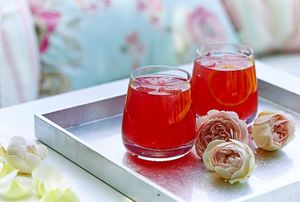Time for bootcamps, ballet and burgers
January is always the time of year for a health kick, and this one will be no different. Here are some of the ways to fight off the festive excess.

From bootcamp workouts and ballet to faux-meat and alcohol-free cocktails - 2019 will bring a raft of new health and wellbeing crazes.
After the excesses of the festive season, many of us will be looking to hit the gym and reduce our calorie intake.
This year there will be different ways to sweat, with experts predicting more people will shake-up their exercise regimes.

Treadmills are back in vogue, with consumer intelligence showing an 82 per cent increase in bookings for classes involving a running machine last year.
These sessions keep the runner motivated with an instructor pushing them to pump up their incline and hit that sprint finish.
Ballet inspired fitness classes have been popular with women for a number of years but in 2019, more men are expected to reap the benefits with studios becoming a gender neutral zone.
Calories
Army-inspired workout classes that help you to burn 1,000 calories in a single session, using a mixture of running and weights to tone muscle and maximise fat loss, will also continue to soar in popularity this year, say experts.
Gym chains such as the Gym Group, which has branches in Telford and Wolverhampton, and David Lloyd, which has sites in Brierley Hill and Lichfield, are among those offering these style of sessions.
And 2019 is also said to be about setting yourself a challenge, rather than just working out for the sake of getting fit.
Whether it's running in the Shrewsbury or Wolverhampton half-marathon, taking on a Tough Mudder assault course or even the Ironman 70.3 Staffordshire.

But if you know a strict diet is destined to fail then the British Nutrition Foundation recommends making smaller changes to your daily routine and swapping old habits for better ones.
Sara Stanner, the BNF's science director, says: "Many of us start the New Year with great ambitions to eat better and be more active, but these resolutions may falter after just a few weeks or months.
"Finding behaviours that work for you is key to making sure that short-term changes become long-term habits and part of the daily routine."
Its Try, Swap, Change weekly planner can be personalised to help you focus on achieving individual goals, such as reducing sugar or becoming more active.
Wellbeing
It includes suggestions such as increasing your fish intake or substituting snacks that are high in sugar and salt with snacks with a variety of fruit and vegetables.
There is also wellbeing advice such as taking regular screen breaks and adding 10 minutes of activity, such as walking, each day.
Another way of boosting your mental health that's gathering pace is laughter yoga. The unique concept of laughter without a reason sees a combination of laughter exercises and deep breathing bringing more oxygen into the body and brain and releasing endorphins.
Maggie Thompson, who runs classes in Wordsley, Dudley and Halesowen, says: "We laugh when we breathe out and this helps us to expel stale air from our lungs. We then need to replenish our lungs with fresh oxygenated air.
"So, at a laughter yoga session, participants constantly change the air in their lungs through the laughter exercises.
"This is done in conjunction with deep breathing exercises in between – the deep breathing is the Yogic element to the activity.
"This all makes us feel energised as well as uplifted from the joy we feel from sharing the laughter with fellow participants."

Meanwhile vegan food is predicted to be one of the biggest food trends for 2019 amid its rapidly increasing popularity . Following in the wake of the likes of Marston's meatless 'bleeding' burger will be a host of other faux-meat products such as mushroom jerky, pork-free rinds and soy chorizo catching people's attention.
If you're one of the estimated 30,000 people in the UK taking part in Dry January there is also good news as this year is also expected to see the rise of the non-alcoholic drink.
The average Millennial consumes just five units of alcohol a week, which equates to about two small glasses of wine or two pints of beer, abstaining altogether is becoming more mainstream as over 25 per cent of young people class themselves as 'non-drinkers'.
This means the drinks industry is quickly responding to this health shift with alternatives that go far beyond orange juice and sugary soft drinks.

Diageo has invested in fashionable non-alcoholic spirit Seedlip, while Pernod Ricard is distributing non-alcoholic alt-gin Ceder's and Heineken has launched 0.0 - a non-alcoholic lager.
There are also predicted to be plenty of other options including cocktails on offer for those who want little or no alcohol in their drink.
The alternatives are expanding both for people who've made the choice to abstain, and those that simply want to don't want to have a beer in hand at every social occasion.





